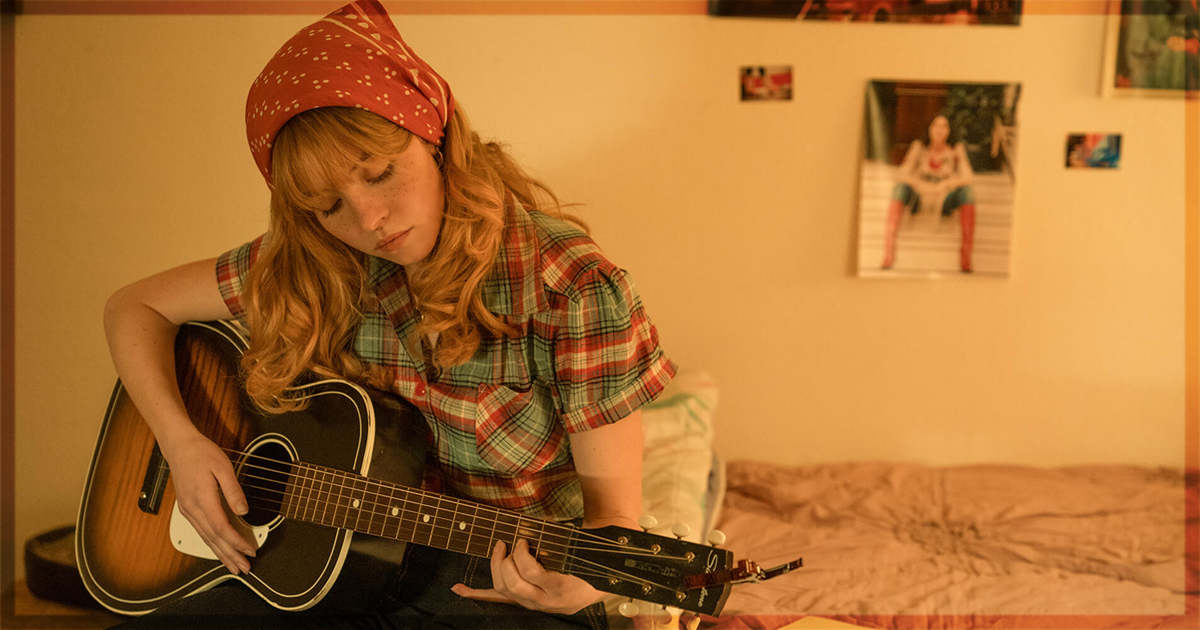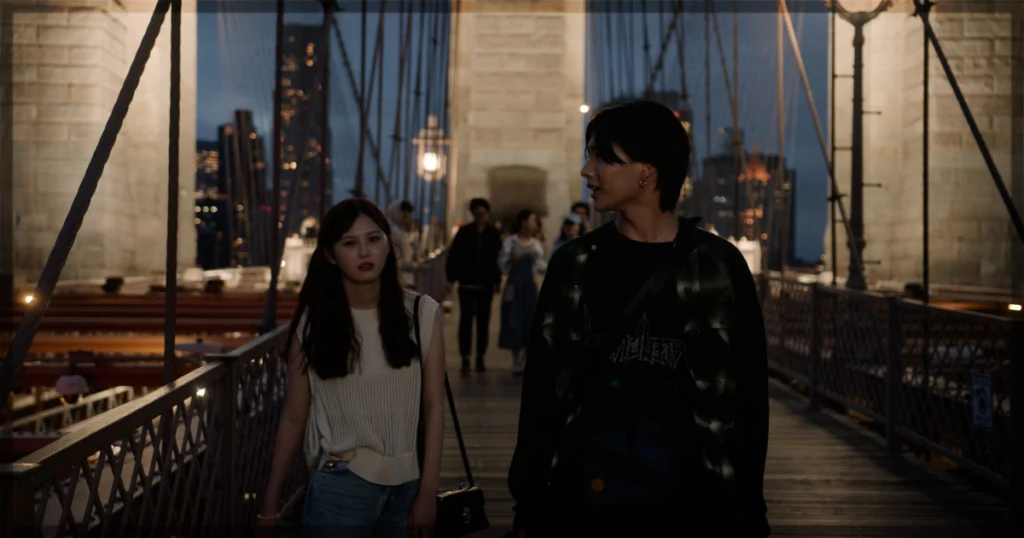Preparing to watch a contemporary western is always an exercise in expectation and curiosity. The genre, so often revisited, can be both fertile ground for reinvention and a minefield of clichés. Tony Tost, in his first feature as writer and director, takes on this risky premise with Americana, a hybrid between modern western and crime thriller, filled with peculiar characters and themes that explore both ancient and contemporary traditions. Personally, I felt a mix of enthusiasm and skepticism: the cast was promising, the ideas sounded intriguing, but I knew the risk of stumbling in tone or structure was considerable.
The narrative, divided into five chapters marked with respective title cards, follows a group of characters connected by a central object: the legendary Lakota Ghost Shirt, a stolen Native American relic sold on the black market. Penny Jo Poplin (Sydney Sweeney, Euphoria), a timid waitress who dreams of becoming a country singer, and Lefty Ledbetter (Paul Walter Hauser, Richard Jewell), a big-hearted war veteran, join forces in an attempt to recover the artifact. Along the way, they face dangerous figures such as Dillon (Eric Dane, Bad Boys: Ride or Die), a criminal hired for the theft, or Roy Lee Dean (Simon Rex, Red Rocket), a corrupt dealer of valuable objects. Meanwhile, Mandy Starr (Halsey) struggles to escape a life of violence and a suffocating past, while her younger brother Cal (Gavin Maddox Bergman, Spirited) believes himself to be the reincarnation of Native leader Sitting Bull, dedicating his life to returning the Ghost Shirt to the Lakota people. In the midst of these entanglements, Ghost Eye (Zahn McClarnon, Doctor Sleep), the leader of a revolutionary Native movement, appears to confront Cal with the cultural appropriation that defines him.
The chapter division, while visually clear, doesn’t add much to the overall experience. Apart from a small chronological detour – the first chapter is actually the end of the third – the structure seems designed mainly to introduce new characters more assertively. Personally, I’ve never been a fan of this device of starting a story with its climax or resolution, only to then “go back” and explain how it happened. Most works don’t do anything interesting with this trick, and Americana is no exception: the surprise effect fades quickly and, since the scene is revisited shortly after, its narrative impact is practically nil. Here, the difference – and an important one – is that this moment isn’t the conclusion of the film, not even close.
More interesting is the genre-blending Tost attempts, even if it doesn’t always land with the same effectiveness. The balance between drama, thriller, and moments of humor works for the most part, but there are sequences that feel out of sync – like a Native tribe listening to hip-hop to symbolize their disconnection from tradition. These attempts at social commentary through comedic or ironic touches don’t always integrate organically. Still, Americana finds a surprising harmony between the weight of its themes and the lightness it sometimes embraces, even if this duality makes the darker ending all the more unsettling.
At the heart of the story lies a reflection on tradition – both the kind that confines and the kind worth preserving. Cal, the young white boy who declares himself Sitting Bull’s spiritual heir because he grew up watching westerns on TV, represents a distorted vision of identity, a desperate search for belonging that ultimately highlights the fragility of his trauma-filled childhood. His confrontation with Ghost Eye exposes this cultural wound, reminding us that collective memory cannot be reinvented at the whim of an outsider’s imagination. On the other side, we have the Starr family, dominated by a grotesque patriarchy that reduces women to objects of submission. Mandy, shaped by this oppressive upbringing, fights to break the cycle and offer her sisters a different life, resisting the legacy of violence and misogyny.
If Cal and Mandy embody two faces of tradition – naive but problematic appropriation and an oppressive legacy that must be destroyed – Penny Jo and Lefty represent the luminous side of Americana. The young dreamer with a stutter that disappears only when she sings finds in the awkward but sincere veteran someone willing to believe in her. The chemistry between Sweeney and Hauser is palpable, filled with tenderness and authenticity, bringing the movie a warmth that contrasts with the brutality surrounding them. Sweeney, in particular, impresses in the way she translates fragility into strength, moving seamlessly between vulnerability and courage.
This mosaic of characters, each with a well-defined arc, sustains the narrative more than the MacGuffin itself. The Ghost Shirt is important as a symbol – of struggle, of memory, of the power attributed to tradition – but what truly holds the audience’s attention are the personal stories. Even though many of these arcs end tragically, the emotional impact lingers, leaving a stronger impression than the bursts of violence or action driving the plot. Perhaps that’s why I wished for a more cohesive, grounded approach, without so many tonal shifts that soften the weight of the conclusion.
Visually, Americana embraces a contemporary western aesthetic that blends rural settings with compositions that evoke the genre’s classic legacy. There’s a clear desire to connect the cinematic myth of the West with modern reality, and in that, Nigel Bluck’s cinematography (True Detective) and David Fleming’s country-infused score (Superman) strike the right chord. The result is an atmosphere that fuses familiarity with strangeness, where both the iconography of the Old West and the signs of modern America coexist – even if not always in full harmony.
Final Thoughts on Americana
Americana carries thematic richness and characters with emotionally satisfying arcs, brought to life by an inspired cast. It’s true that the narrative loses some power in questionable structural choices and a genre fusion that, while ambitious, doesn’t always succeed. But Tony Tost debuts with a film that reveals passion, personal identity, and a clear connection to his cultural background. With just a bit more consistency in execution, this could easily have been one of the year’s most memorable movies.
Rating: B
Americana is now playing in theaters.
Learn more about the film, including how to buy tickets, at the official website for the title.


